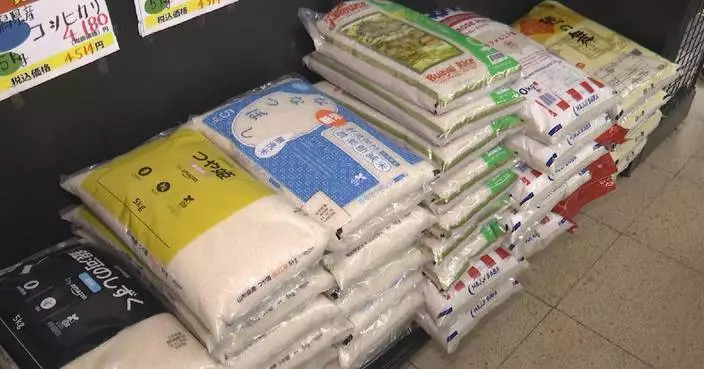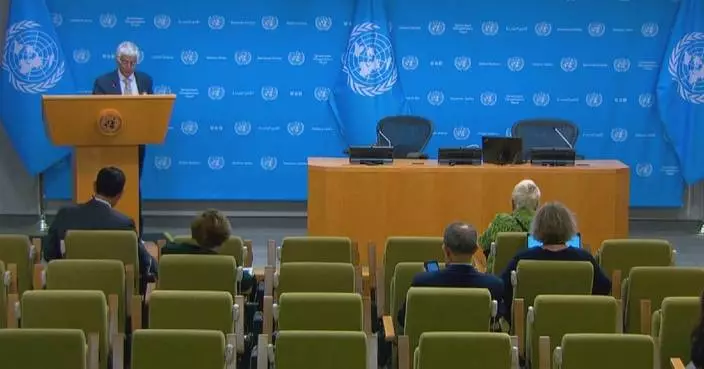Days of heavy rains have worsened the misery of displaced Palestinians in Gaza amid the ongoing conflict, flooding and damaging their makeshift tents.
More than a year since the outbreak of the Israel-Palestine conflict, Gazans are still far from having stable housing. They endured harsh living conditions in temporary tents.
According to the Palestinian Civil Defense, floodwater have risen by more than 30 centimeters inside tents in some severely affected areas, leaving displaced people exposed to the cold and damaging their temporary shelters.
Emergency services reported that several areas, including the southern, northern, and central Gaza Strip, have become uninhabitable due to flooding. Winter remains the most challenging season for over 1.9 million displaced people, as their tents offer little protection from the harsh weather conditions.
In the Deir el-Balah area, floodwater remained at the tent sites, and drainage was difficult.
Ismail Nadim, a displaced Palestinian man, described how their hardship was compounded by the wave of heavy rains.
"After we were displaced, we were exposed to a severe cold wave and heavy rains that drowned us and destroyed everything we had. We do not have a suitable tent to live in, and no one feels for us or looks after our condition. The severe cold made us spend three consecutive nights suffering in harsh conditions. When the storm swept over us and the rainwater entered our tent, my children had to go out due to the severe cold and rain. The nylon covering the tent was torn, and the water flooded everything. Now we are trying to dry the damaged mattresses, but we live in very difficult conditions, without the minimum requirements for a decent life," he said.
The floodwater inundated the fragile tents, soaking mattresses and clothes, leaving displaced families struggling to keep warm, especially for their children.
"The water surrounded us from all sides, and we couldn't manage our situation. We tried to drain the water away from us, but we couldn't. There is no mattress now to sleep on, I put it in the sun to dry. There are no clothes for my children, not even shoes to wear. We can barely provide them with clothes," said Palestinian woman Walaa Abu Khousa.

Heavy rain worsens misery of displaced Palestinians in Gaza
Pop-up stores, temporary retail spaces that are open in hustle and bustle business districts for a limited period, typically a few days to weeks, have emerged as a popular sales strategy among retailers targeting young consumers and became a significant driver of increased consumption.
Compared with traditional brick-and-mortar stores or online sales channels, the pop-up store model can efficiently reach a wide range of potential buyers in multiple cities and scenarios at a lower cost.
For instance, at Gate M West Bund Dream Center in east China's Shanghai, a pop-up store, featuring a six-meter-tall Disney's Stitch figure plus exclusive limited-edition merchandise, made this cute fictional character a top hit this May along the Huangpu River. Despite the event lasting only over 40 days, it attracted thousands of people every day to take photos.
According to staff there, many of the blind boxes and dolls for sale are limited editions and were already sold out upon release.
"I feel that exclusive sales can really arouse people's desire to consume. If you miss it, it will be gone. And it is very cute and pretty. It can be posted on moments," said a consumer.
Limited-time offers, exclusive products, or special events associated with pop-up shops creates a sense of scarcity, generate buzz and create a fear of missing out among customers.
Pop-up shops also allow brands to create immersive experiences that go beyond traditional retail environments. By carefully curating the ambiance, decorations, and interactive elements, brands can captivate customers, add excitement and novelty to their shopping journey, and leave a lasting impression.
Since April, China's first-ever LEGO-themed garden has been unveiled at the Bund Finance Center in Shanghai for a limited period, converting the shopping mall into a temporary giant garden featuring thousands of stunning floral creations made from colorful LEGO bricks. By encouraging consumer participation through photo-taking, check-ins, and interactive experiences, the pop-up has successfully pushed the sales of new products to record highs.
"By introducing our new products in this way, our overall sales have been greatly boosted. Consumers' comments can also be fed back to our brand, providing more inspiration for our future product planning and event planning," said Liu Mingsheng, brand manager at LEGO China.
Through the model, brands can enhance their visibility, explore new markets, and trial new product launches. Simultaneously, shopping malls and commercial districts can effectively generate foot traffic in a short period.
"During the period of pop-up activities, the foot traffic is basically doubled compared to regular days. These activities also prolong customers' dwell time within the mall, encouraging spending on dining, leisure browsing, and other purchases, thereby enhancing overall consumption conversion rates," said Wu Yiping, director of Marketing Department at Shanghai Bund Financial Center.

Pop-up stores fuel consumption in China























































